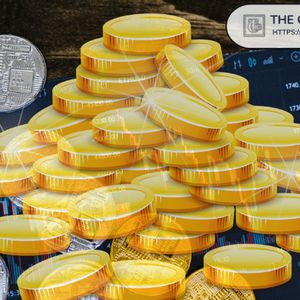Market Pulse
The Middle East, long associated with traditional industries, is undergoing a profound digital metamorphosis, positioning itself as a burgeoning powerhouse in the global fintech and crypto landscape. As of {current_date}, this strategic shift is driven by ambitious government visions, a young, digitally-native population, and a concerted effort to diversify economies beyond hydrocarbons. The region is not just adopting new financial technologies; it’s actively shaping them, fostering an environment ripe for innovation and significant investment in digital assets and blockchain solutions.
Catalysts for Regional Fintech Growth
Several key factors are fueling the Middle East’s rapid embrace of digital finance. Governments across the Gulf Cooperation Council (GCC) and broader MENA region have launched ambitious national agendas, such as Saudi Arabia’s Vision 2030 and the UAE’s various digital initiatives, which explicitly prioritize technological advancement and economic diversification. These blueprints create fertile ground for fintech adoption and blockchain integration.
- Visionary Government Initiatives: National strategies explicitly target digital transformation and economic diversification.
- Demographic Dividend: A predominantly young and tech-savvy population is driving demand for modern, efficient financial services.
- Strategic Geographical Position: The region serves as a bridge between East and West, facilitating cross-border innovation and investment.
- Diversification Imperative: A strategic move away from oil dependency, promoting knowledge-based economies.
Embracing Digital Assets and Blockchain
The Middle East has shown a remarkably proactive stance towards digital assets, moving beyond initial skepticism to establish regulatory frameworks and foster adoption. Jurisdictions like the UAE, particularly in financial free zones such as Abu Dhabi Global Market (ADGM) and Dubai International Financial Centre (DIFC), have developed comprehensive licenses for crypto asset service providers, attracting major global players.
This progressive regulatory environment, combined with increasing retail and institutional interest, has seen a surge in crypto trading volumes and blockchain-based ventures. Beyond speculative assets, blockchain technology is being explored for a multitude of use cases, from enhancing supply chain transparency and digital identity verification to revolutionizing real estate and healthcare.
The Rise of Fintech Innovation Hubs
Specific cities and economic zones within the Middle East are emerging as significant innovation hubs, drawing in talent and capital. Dubai and Abu Dhabi lead the charge, hosting major industry conferences, accelerators, and incubators. These cities are actively competing to be the global capital for digital finance.
- UAE (Dubai & Abu Dhabi): Leading with comprehensive crypto licensing, dedicated free zones, and a robust startup ecosystem.
- Saudi Arabia: Rapidly catching up with substantial sovereign wealth fund investments and initiatives to foster local fintech talent.
- Bahrain: Pioneering clear regulatory frameworks for crypto asset services and a welcoming environment for fintech startups.
- Qatar: Exploring CBDC initiatives and fostering financial technology development within its financial centers.
Challenges and Future Outlook
Despite the undeniable progress, the Middle East’s fintech and crypto journey is not without its challenges. Regulatory fragmentation across different jurisdictions, the need for skilled talent, and cybersecurity concerns remain pertinent. Furthermore, global economic shifts and geopolitical dynamics can influence investor confidence and market stability.
However, the opportunities far outweigh the hurdles. The region’s vast untapped markets, potential for cross-border payment innovation, and the integration of Islamic finance principles with modern fintech offer unique avenues for growth. The continued commitment from governments and private sectors suggests a robust trajectory towards a truly digital and decentralized financial future for the Middle East.
Conclusion
The Middle East’s metamorphosis into a digital, decentralized, and disruptive financial landscape is a testament to its forward-thinking vision and strategic investments. What began as an effort to diversify economies has evolved into a full-fledged embrace of fintech and blockchain, positioning the region as a significant player in the global digital economy. As {current_date} highlights this ongoing transformation, the Middle East is not just adapting to the future of finance; it is actively defining it, promising a dynamic and innovative era for its citizens and the world.
Pros (Bullish Points)
- Visionary government support and significant capital investment accelerate fintech and crypto adoption.
- Progressive regulatory frameworks in key jurisdictions attract global blockchain and digital asset firms.
Cons (Bearish Points)
- Regulatory fragmentation across diverse MENA jurisdictions could complicate large-scale unified adoption.
- Reliance on global economic stability and oil prices can introduce volatility into regional investment cycles.



